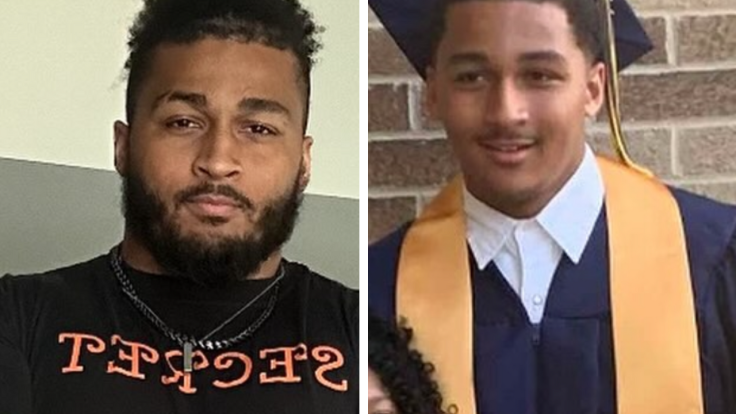The Untold Challenges Behind Marshawn Kneeland's Tragic Passing
The Dallas Cowboys defensive end's tragic passing at 24 highlights the mental health challenges and career pressures faced by second-year NFL players

Marshawn Kneeland, 24, a defensive end for the Dallas Cowboys, died on 5 November 2025. He was drafted in the second round of the 2024 NFL Draft from Western Michigan University, per Reuters.
In his rookie season, Kneeland played 11 games, recording 18 tackles and three sacks. By his second year, he scored his first career touchdown by recovering a blocked punt.
These figures reflect his growing talent, but they also illustrate the intense scrutiny young players face, with every performance analysed and compared.
The Fatal Incident That Shook the NFL
Kneeland's death followed a police pursuit in Frisco, Texas. Officers reported he fled a traffic stop, causing a vehicle crash and a foot chase, before being found deceased from an apparent self-inflicted gunshot wound.
Police noted he had expressed suicidal thoughts prior to the incident.
Suicide is a leading cause of death for young adults aged 18–35 in the U.S., with around 14 per 100,000 in this group dying annually, placing Kneeland's passing within a concerning national trend.
How Personal Loss Exacerbated Pressure
Kneeland had suffered profound personal grief. His mother passed away unexpectedly in February 2024, shortly before he entered the NFL, per People.
He paid tribute to her memory by wearing a necklace containing her ashes. His agent, Jonathan Perzley, said: 'Marshawn poured his heart into every snap and every practice. He was a good man, and losing him is heartbreaking.'
Studies show individuals who lose a close family member are 1.5 times more likely to experience depression or suicidal thoughts within a year, emphasising the compounded risk Kneeland faced.
The Hidden Struggles Facing Second-Year NFL Players
Kneeland's story reveals common but often invisible challenges for second-year NFL players:
- Escalating Expectations: Coaches report 68% of second-year athletes face more pressure than rookies.
- Short Career Span: The average NFL career lasts 3.3 years, leaving many players uncertain about job security before they turn 25.
- Personal and Relocation Stress: Injuries, moving cities, and family loss increase emotional strain.
- Mental Health Stigma: Around 60% of professional athletes avoid seeking support, fearing it will be seen as weakness.
Even with counselling offered by teams, experts warn that these supports may not reach players at the time of greatest need.
Lessons from Kneeland's Tragic Death
His passing raises urgent questions:
- How can teams identify early signs of emotional distress?
- What resources can help athletes process grief while performing at a high level?
- How can the NFL reduce stigma around mental health?
Experts suggest proactive mental health programmes, mentorship from veteran players, and open communication channels. Research indicates these measures could lower the 1 in 5 rate of mental health challenges among professional athletes.
Remembering Marshawn Kneeland Beyond the Field
Kneeland's life was more than football. He was a son, a friend, and a role model. His on-field potential was evident, but the pressures of professional sport and personal grief were battles few could see.
His story highlights the hidden struggles of second-year NFL players and the urgent need for stronger mental health support in professional sports.
If you or someone you know is struggling with suicidal thoughts, help is available. In the U.S., contact the Suicide & Crisis Lifeline by calling or texting 988. For mental health support in professional sports, explore NFL Player Wellness resources.
© Copyright IBTimes 2025. All rights reserved.





















